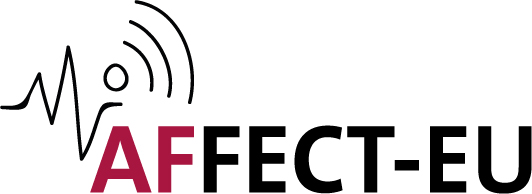8th AFNET/EHRA Consensus Conference
Early diagnosis and precision treatment of atrial fibrillation in the digital era
12. - 14. Oktober 2021, Hamburg, Deutschland
The program of the event is available here.
Despite marked progress in the management of patients with atrial fibrillation (AF), the arrhythmia remains a diagnostic and therapeutic challenge in many, in particular older individuals worldwide. It carries a significant public health burden with high mortality and morbidity, severe societal impact for affected patients and their families, and relevant cost to health care systems. This is the reason why intensive research at the basic science and clinical level is ongoing to better understand the different underlying mechanisms that are reflected by the relatively uniform electrocardiographic pattern of AF.
New data show that early rhythm control therapy, initiated shortly after the clinical diagnosis of AF, can improve outcomes in patients with AF. These findings have the potential to change the rationale and practice of rhythm control therapy in patients with AF. We need to understand this effect better, and there is a new impetus to increase our efforts to improve the effectiveness and safety of rhythm control therapy, for example in patients with AF and heart failure or in those with recurrent AF on rhythm control therapy.
Translational research identified atrial cardiomyopathy, both due to AF and preceding its diagnosis, as a common finding and potential driver for AF. Advances have been made for the quantification of atrial myopathy from cell to clinical level. Atrial dysfunction and the broad spectrum of clinical and risk factor information have been used to define populations at risk of AF in primary prevention and post stroke. The examination of genetics including large data sets of whole genome sequencing and omics have made significant advances. Artificial intelligence-based methods integrating all available information and extracting central features have shown promising first results.
The new AF guidelines have been released and will offer many aspects for discussion, e.g. adaptation of the ABC pathway to include early rhythm control, and implementation of the 4S classification, especially the atrial cardiomyopathy component, in clinical care. Strategies for efficient implementation in diverse settings need to be discussed.
The digital devices enable long-term continuous monitoring of biosignals, including the ability to detect rare arrhythmias, using wearables and implanted devices, which will further feed the data pipeline. Initial results from uninterrupted rhythm recording over years have provided insights into the natural history of AF and will soon generate AF burden-related outcomes. They will inform the frequency and intensity of AF screening required to efficiently reduce strokes.
AFFECT-EU Session: Refined atrial fibrillation screening
- Implementation of integrated care in AF
| Hein Heidbüchel, Antwerpen, Belgien - Efficiency of prolonged rhythm monitoring for AF detection
| Jesper Hastrup Svendsen, Kopenhagen, Dänemark - Reducing stroke risk by screening for AF?
| Emma Svennberg, Stockholm, Schweden - Reducing recurrent stroke risk by prolonged screening for atrial fibrillation (MonDAFIS)?
| Karl Georg Häusler, Würzburg, Deutschland
Advances in phenotyping of AF patients
- Quantification of atrial myopathy as an indicator of stroke risk and OAC indication
| Jeff Healey, Hamilton, Kanada - Artificial intelligence and digital applications to guide diagnosis of AF and its complications
| Stéphane Hatem, Paris, Frankreich - Feature extraction and new biomarkers for AF
| Winnie Chua, Birmingham, UK - AF telecare and app-based management
| Dominik Linz, Maastricht, Niederlande
DZHK Session: Unsolved issues in atrial fibrillation treatment 
- Early rhythm control therapy to improve outcomes in patients with AF (EAST – AFNET 4)?
| A. John Camm, London, UK - Digitals or beta blockers for rate control in patients with AF and heart failure – new answers to an old question (Rate AF)
| Dipak Kotecha, Birmingham, UK - How to maintain cognitive function in AF patients (role of anticoagulation)?
| Lena Rivard, Montreal, Kanada - Atrial cardiomyopathy and heart failure to guide rhythm control therapy?
| Andreas Götte, Paderborn, Deutschland
Workshops
- Cognitive function, OAC
- Screening implementation (how and who)
- Do we need a new approach to rhythm control therapy (asymptomatic patients, newly diagnosed AF)
- AF progression, left ventricular fuction, atrial cardiopathy and other surrogates
- Structured quality of care
- Big data/AI, EHR in AF diagnosis and management
----------------------------------------------------------------------------------------------------------------------------------------

The event has been financed by AFNET and EHRA with the financial support of the AFFECT-EU project. AFFECT-EU is receiving funding from the European Union’s Horizon 2020 research and innovation Programme under grant agreement N°847770.
